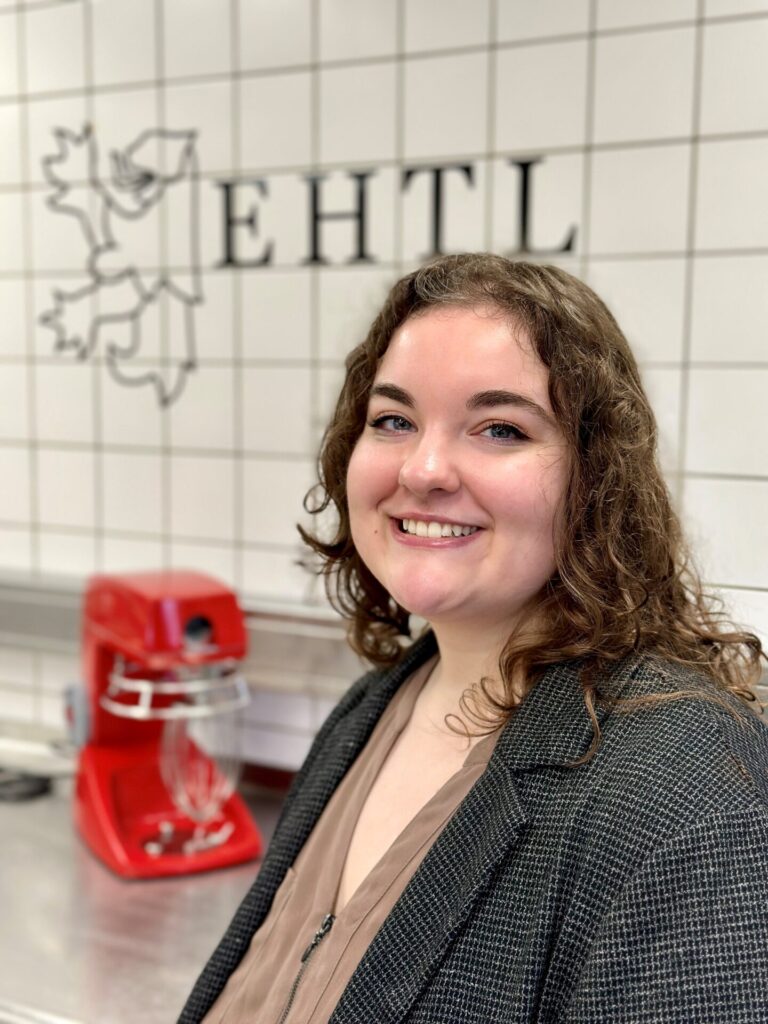Julia Barone is an English Teaching Assistant with the Fulbright program here in Luxembourg teaching at the École d’Hôtellerie et de Tourisme du Luxembourg, the Lycée Classique de Diekirch, and the University of Luxembourg.
AMCHAM: Please introduce yourself to our members so they understand who you are, where you come from and what you are doing in Luxembourg.
INTERVIEWEE: My name is Julia Barone, and I am an English Teaching Assistant with the Fulbright program here in Luxembourg. I’m originally from Pennsylvania, and I’m now teaching at the École d’Hôtellerie et de Tourisme du Luxembourg, the Lycée Classique de Diekirch, and the University of Luxembourg.
Please explain your current role, how you are being influenced by your current professional journey and how you believe you are serving others.
Fulbright is a cultural exchange program and my role here is not simply teaching English but promoting positive and productive intercultural conversations, education, and experiences. I have the opportunity to function as a living link between my Luxembourgish students and the United States; I can humanize for them the version of the U.S. that they see on social media or in the news, and they in turn can share with me their cultural histories, values, and customs. This process has massively influenced my personal journey, encouraging me to broaden my horizons and see the full range of possibilities that exist both in and outside of the United States. I also deeply believe that the process of cultural exchange is one which serves both of our communities, strengthening the bonds between the youth in our respective nations and allowing for connection that ultimately translates into sustained relationships and mutual understanding.
Please tell our readership what you find are the similarities and differences between Luxembourgers and US people.
I see a lot of similarities: first and foremost, Americans and Luxembourgers both make up nations characterized by a variant of the ‘melting pot’ which at the same time maintain strong independent identities. This gives us each an understanding of a foundational building block of the national identity and makeup of the other. Many of our core values are the same, and our desires on a personal and collective level reflect them. As for differences, I have to say that the Luxembourgers are eating us up in the street food competition—gromperekichelcher is a triumph.
Please share with our readership the values which guide your life, and why you hold these values important to you.
I try to be guided by principles of respect, openness, and exploration, which have allowed me to negotiate and renegotiate my understanding of myself and my goals in many different contexts.
What are your current learning and skill development objectives and how are you developing them?
The remarkable experiences I’ve had here have convinced me of the necessity of decentering oneself in order to better see both your own and others’ priorities and perspectives. My goal while I’m here is to explore the social and intellectual productivity generated by that process; I’m not simply learning to teach (though that is also a large part of what I’m doing here) but to see what connects and separates us.
What advice do you think most important to share with others to help them develop to become the best they can be
Cultivate your ability to sit with discomfort. Progress—on any scale—does not and cannot happen if you are more attached to your comfort zone than to your potential and the potential of those around you. Regardless of what field, community, or culture you find yourself in, being prepared to encounter and coexist with discomfort will allow you to find and become whatever ‘best’ might mean for you.
In what ways are you both optimistic and fearful about the future … and what advice do you follow and perhaps offer to others to mitigate the risks and promote the most positive outcome.
I think it’s easy to be fearful right now and difficult to be optimistic—there is so much violence and anxiety around us, and it can be easy to let that become all-consuming. Optimism gets a bad reputation; it’s seen as naive or willfully ignorant. I would suggest in opposition to that that informed optimism is a powerful and necessary tool. I try to let realistic fearfulness inform but not dictate the decisions that I make, and the same goes for optimism.
What is your favorite book and why?
My favorite book is Jane Eyre, because I’ve never been able to pin it down. I read and re-read and every time I learn something new about the book, about myself, and about the world we both exist in.
How do you hope to see yourself in five years’ time.
I hope to be in graduate school during that time, pursuing my PhD in English literature.

